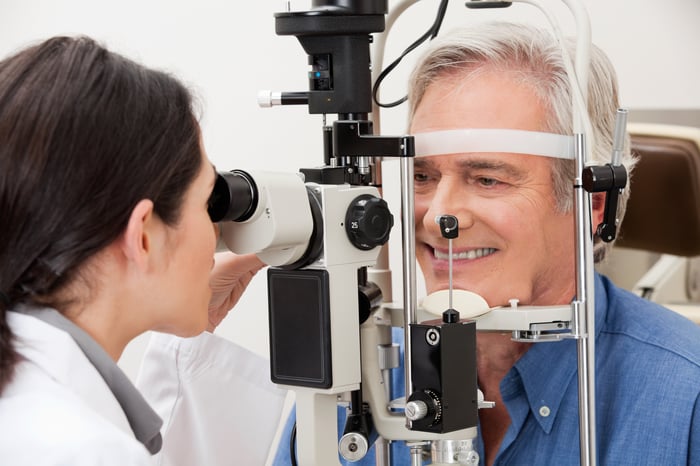
Medicare is the federal government’s way of providing healthcare assistance to the eligible members and those people who need it most. For the Medicare Vision Benefits, the government has numerous programs and healthcare coverage to ensure that the people have good eyesight. In this regard, there are Medicare vision benefits for those who are eligible and their beneficiaries. Among the most common information that you need to know about the Medicare vision benefits are the following. The government gives priorities to qualifying citizens who are 65 years old and above to be eligible for Medicare vision benefits. These individuals are those who are too old to work and earn income to support their healthcare needs. People with specified disabilities and those who are classified to have low income than the average level are also eligible for Medicare vision benefits.
What Covers the Benefits
Depending on the state you are living in, Medicare has different eligibility programs and benefits for qualified individuals. For most states, children who are younger than 21 years old and in the Early and Periodic Screening, Diagnostic, and Treatment (EPSDT) program can avail eye exams, eyeglass frames and lenses for their vision benefits. For adults, the state will determine how frequently a vision benefit is claimed annually. Some of the most common Medicare vision benefits for adults include Medicare Part A or Hospital Insurance. Medicare Part A helps pay the expenses, prescription drugs, and medicine. Emergency room attention is also covered. However, routine eye exams are not included. Some Medicare programs in some states also cover surgery for cataract.
Requirements to Be Eligible in Medicare Vision Benefits
Each state has different sets of policies when it comes to determining the eligible individuals for the health care programs – specifically for the vision benefits. Among the most common requirements is that the individual must be a resident of a certain state in a specific period of time. An individual must also fall under the age identified by the Medicare. It is also required that an individual falls under a specific income bracket to be an eligible Medicare beneficiary.
Be Informed
It is very important to be informed especially when it comes to taking care of your eyes. This is why the government offers a helpline where people can ask for their vision benefits concern.
Which Medicare Covers Vision?
When seeking vision benefits through Medicare, the first thing you want to look into is the type of Medicare you are receiving. Medicare has 3 parts part A, B, and D.
- Medicare Part A- is Hospital Insurance which helps with costs associated with hospital visits, home health, and hospice care. While you can receive coverage here for Emergency Room eye-related visits Medicare part A will not cover regular eye exams and routine visits.
- Medicare Part B- is where you would find your Vision Benefits. Part B covers doctor visits, medical examinations, lab work and most services not included in Medicare part A. This includes eye doctor visitations if related to diseases are covered but you may find routine exams are not covered here. Preexisting diseases related to the eye may also be covered by Part B insurance.
- Medicare Part D- is your vision benefits through Medicare covering medications and prescriptions coverage with your doctors or local pharmacists. Typically eye related medications are covered by this insurance.
How do I receive Vision Benefits?
Medicare can be acquired through your local state most commonly. Medicare does alternatively have a program known as Medicare Advantage Plan which can be directly applied for through authorized third-party insurance companies. This is often referred to as Medicare Part C. Coverage may vary depending on the third party company. Keep in mind co-pays are possible through some Medicare Insurance Providers.
What is Covered in Medicare Vision Services?
- Routine Testing- Medicare Part B does not typically cover regular routine checkups related to the eyes without a preexisting condition. Medicare Advantage Plan is through a third-party insurance company but does cover some routine examinations. To know which examinations are covered you will need to contact those third-party insurance providers directly.
- Glaucoma Screening- Annual Glaucoma Screenings are covered under Medicare Part B for individuals who are considered at high risk for developing Glaucoma. Some groups who qualify are diabetics, African Americans over 50 years of age, and individuals with a family history of developing Glaucoma.
- Eyewear- Limited to basic eye wear types Medicare may help with the costs of one pair of eyeglasses following surgeries and procedures which require eye wear. Prostheses, contacts, and seeing glasses may be available if prescribed by a doctor.
- Eye Prostheses- Patients who suffer from absence or shrinkage of the eye due to surgery removals, accidents or birth defects is covered for a Prostheses along with coverage for routine prostheses maintenance. Maintenance includes polishing and resurfacing up to two times per year. Prostheses are also covered for resizing under any circumstances to ensure fitting. Replacement of prostheses is only covered for the first 5 years after purchase.
- Age-Related Conditions- Many eye conditions associated with and caused by age are often covered with Medicare Part B. Medical conditions will need to be recorded by your medical professional as being age-related and some exclusions may apply to this rule.
- Cataract Surgery- Medicare covers most procedures included in Cataract Surgery including the insertion of a lens implant into the eye if visual conditions require it. Only standard lenses are covered by this insurance, you may opt for premium lenses but may be required to pay out of pocket the price difference between the two lenses.
General Information Guidelines for Medicare Vision Pricing
Medicare typically pays a percentage of approved amounts for vision-related items and services covered by Medicare Part B while you pay the remaining cost. Coverage is typically at or below 80%. Items such as glasses, contacts, and prostheses are often covered by this policy. Medicare often requires eye wear to be purchased through a Medicare Authorized Retailer to receive coverage. This policy is in effect not to deffer recipients from specific companies but to protect recipients and their money. Ensuring the products used are genuine and effective medical prescription grade materials reducing the chances of medical complications in the future.
To help aid with the costs not covered by Medicare and its associated third-party insurance companies, Medigap is a program designed to help cost share with copay’s, procedures, and routine checks not covered by Medicare. Medigap will not absorb all costs and it will itself have to be purchased from the third party provider to be able to be used with your medical coverage. Medigap is effective for recipients who find themselves having to seek medical care not covered by Medicare often enough to where the additional costs outweigh the extra payment plan to the insurance provider. Medigap is available to any Medicare recipient through third-party insurance companies excluding recipients of Medicare Part C and Medicaid.
Questions Not Covered by the Information Above
There are services available to individuals who need more general information guidelines for Medicare Vision. Medicare has lines and contact centers dedicated to helping recipients with account and service related questions with multiple lines of contact to cater to those who do not have access to all forms of communication. Medicare can be contacted by phone at 1-800-Medicare during regular business hours. If you do not know the business hours or have access to a phone you can refer to the website Medicare.gov. Medicare Contact Centers can also be contacted by direct mail to Medicare Contact Center Operations PO Box 1207 Lawrence, KS 66044. If you need to, someone else can contact Medicare on your behalf. But before you have them contact you will need to fill out a form. This form is the Authorization to Disclose Personal Health Information form located on the Medicare.Gov website. If you cannot fill out the form online you will need to call or mail to have the form mailed to your address.
